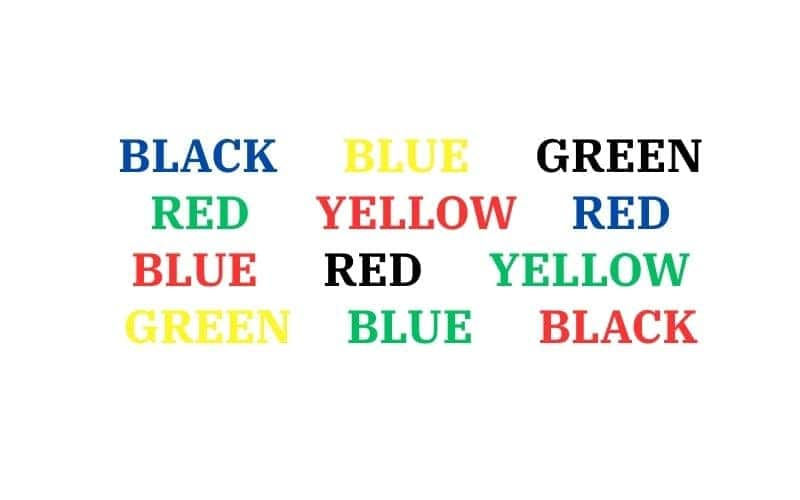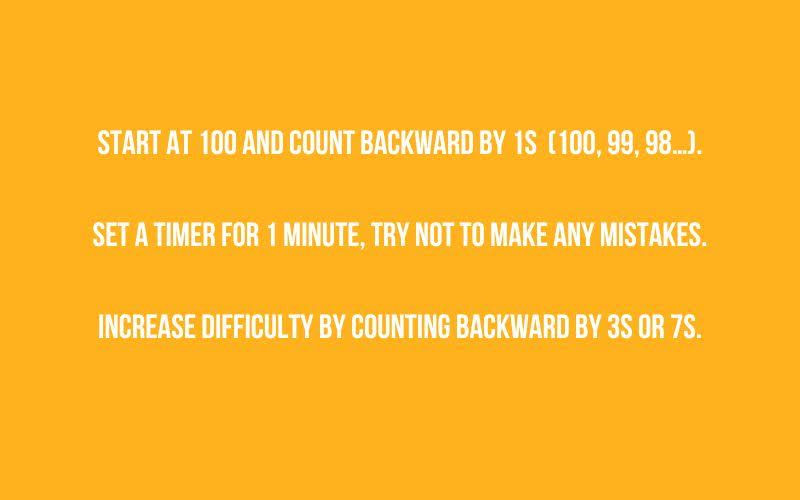Workness Series 03: Focus Better, Think Clearer: A Practical Guide to Concentration
- Catherine Manin
- May 26, 2025
- 6 min read
You sit down to read something — maybe on your computer or in the living room while sipping coffee.
Then your phone buzzes.
A friend just emailed — they’ve booked a trip. Better check the weather.
Wait, what’s that smell? Someone’s cooking. Now you’re hungry.
Oh no, you forgot to stop for gas yesterday. And there’s your phone again…
A few minutes have passed, and you haven’t even finished the first paragraph.
Despite your best intentions, you just can't concentrate.
Sound familiar? This is what happens when your concentration slips.
It’s not your fault — your attention is constantly under attack.
On the contrary, when your mind is focused, you conserve your energy instead of spending it on irrelevant thoughts or distractions.
Concentration helps you study better, understand faster, remember more, and stay on track with tasks and goals.
Imagine what you could accomplish, if you could control your attention and focus your mind!
There are skills you can learn and actions you can take to help your brain focus better.
The choice is yours: be mastered by the mind — or become its master.
Welcome to the 3rd Article in my Workness Series in which you will discover practical tips for staying energized and focused.
Let’s dive into some simple yet effective techniques that will help you sharpen your focus and maximize productivity throughout your workday.

Why Concentration Is So Hard Today
Before jumping into practical exercises, let’s look at what makes focus so difficult in modern life:
Digital distractions: Constant notifications, emails, and calls drain mental energy.
Information overload: We now consume more information in a single day than our ancestors did in a month.
The multitasking myth: Doing multiple things at once reduces productivity by up to 40%.
Environmental triggers: Noise, clutter, and interruptions all make it harder to stay focused.

5 Exercises to Train Your Focus
Think of your mind as a muscle:
When you want to strengthen your muscles, you lift weights.
If you want to improve the concentration and focus of your mind, then you need to work out and exercise your brain.
Your mind muscles, just like your physical muscles, need resistance; need challenges that stretch their limits and in doing so, grow their focus fibers.
These exercises help you build stronger focus through daily practice.
1. The “F” Counting Exercise
Benefit: Boosts attention to detail.
Choose a page of text (e.g. newspaper, book).
Set a timer for 2 minutes.
Count every “F” you can find.
Most people miss many on their first try.
Try it again with different letters to improve.
Sample text: “Finished files are the result of years of scientific study combined with the experience of many years.”

PS: How many F’s did you spot? Found all 6? Bravo!
2. Color-Word Mismatch
Benefit: Trains your brain to override automatic reactions.
Make a list of color names (e.g. red, blue, green) but print them in different colors.
Say the ink color out loud, not the word.
Start with 10 words and increase as you improve.
Track your speed and accuracy over time.

3. Reverse Counting
Benefit : Strengthens working memory.
Count backward from 100 by 1s (100, 99, 98…).
Make it harder: count backward by 3s or 7s.
Set a timer for 1 minute. How far can you go without mistakes?

4. The 5 more rule
Benefit: Builds mental endurance and strengthens attention span.
Whenever you feel like quitting or your concentration starts to fade, tell yourself to do just five more.
Five more minutes of focused work, five more pages of reading, or five more steps in a task.
This technique trains your brain to push past mental fatigue and builds resilience.
Over time, you’ll stretch your focus limits and improve your ability to stay with a task even when it gets difficult.
It’s not about perfection — it’s about staying just a little longer, and teaching your mind not to give up too soon.

5. Object Observation
Benefit : Sharpens attention to detail.
Pick a simple object (pen, mug, paperclip).
Study it for 2 minutes, noticing every feature.
Afterward, write down what you saw.
Increase your observation time as your focus grows.

How to Stay Focused at Work
Work environments often challenge your focus. These strategies can help you stay on track:
Tidy Your Space
Create a focus zone: Set up a specific spot — even a corner of a room — that’s only for focused work. Train your brain to associate this space with concentration.
Silence distractions: Turn off non-essential notifications on your phone and computer. Use tools like Focus Keeper, Forest, or website blockers like Freedom.
Use headphones: Noise-cancelling headphones or even white noise can help reduce background distractions, especially in shared or noisy environments.
Clear the clutter: A clean and organized desk helps your mind feel less scattered. Keep only what you need for your current task in front of you.

Structure Your Workflow
Time block your day: Set aside specific time slots for different types of work — like writing, meetings, admin — and protect those blocks to stay on track.
Batch similar tasks: Group related activities together (e.g. answering emails, scheduling, planning). This reduces the mental effort of switching between tasks.
Follow your energy: Identify your peak hours — the times of day when you're naturally more alert — and reserve those for deep or demanding work.
Limit meetings: Too many meetings kill focus. Avoid constant interruptions by setting clear “no meeting” zones in your calendar. Make space for uninterrupted work like an appointment with yourself to actually get things done.

Manage Communication
Check email less: Set 2–3 times a day to check emails and messages. You’ll stay responsive without letting your attention get hijacked.
Show your focus: Use a “do not disturb” sign, status, or app setting so others know when you’re in focus mode — and when you’re available.
Set clear rules: Talk with your team or manager about how and when interruptions are okay. This builds mutual respect around focused time.
Respond when ready: Not every message needs an instant reply. Give yourself permission to finish your current task before replying.

What to Do When Your Focus Fades
Even with strong habits, your mind will wander sometimes. Here’s how to notice it and bounce back:
Signs Your Focus Is Dropping
Re-reading the same line: If you're scanning the same sentence multiple times without understanding it, your brain has checked out.
Wandering thoughts: You start thinking about dinner, errands, or completely unrelated ideas — anything but the task in front of you.
Fidgeting or restlessness: You tap your fingers, adjust your seat, or feel the need to move. These are physical signs of mental fatigue.
Urge to check messages or scroll: Suddenly, checking your phone or inbox feels urgent — even when there's no real reason.
Jumping from one task to another: You switch tabs, open a new app, or start a different project without finishing the current one.

Quick Fixes to regain focus
Micro-break: Pause for 30 seconds to look out the window or stretch your arms and shoulders. It resets your mental state.
Move: Get out of your chair — walk around the room, go outside for a minute, or do a few light stretches to re-energize your body.
Hydrate: Dehydration reduces focus. A glass of water can clear brain fog faster than you’d expect.
Break it down: If a task feels too big, chop it into smaller steps. Focus on just the next 5 minutes or the next mini-goal.
Change scenery: Move to a different spot — even a new chair or table can shift your attention and renew your motivation.

Preventing Future Drops
Track your patterns: Keep a simple log of when your focus fades — what time, what task, and what triggered it. Look for patterns.
Eat well: Choose meals with protein, healthy fats, and slow-burning carbs. Avoid sugar crashes that kill concentration.
Prioritize sleep: Without enough rest, no technique will work. Aim for 7–9 hours of consistent, quality sleep.
Use your peak time: Know your natural rhythm — morning, afternoon, or evening — and do your hardest work when your brain is sharpest.
Take breaks early: Don’t wait until you're drained. Plan short, regular breaks ahead of time to keep your focus strong.
Putting It All Together
Improving concentration is a skill — and like any skill, it grows with consistent practice. Try this simple routine to start:
1. Pick two exercises and do them daily for 5–10 minutes.
2. Make one small change to your work environment to reduce distractions.
3. Use the Five More Rule when your focus starts to slip — push through just a bit longer.
4. Track when your focus dips and how you respond.
5. Set boundaries around tech interruptions during key work hours.
Losing focus is normal.
What matters is that you notice it — and choose to return to the task.
Each time you do, you're not just getting things done — you're building a brain that knows how to stay clear, calm, and in control.
That’s real mental strength — and it’s completely within your reach.
Prefer a video format? Watch it here or on my YouTube channel: @empowiredva!




Comments